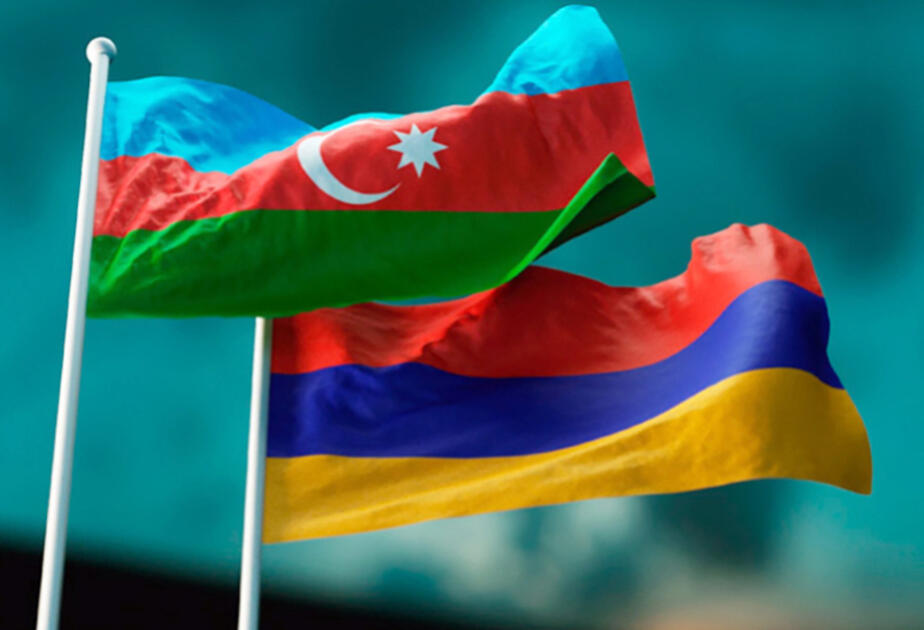
The meeting between the President of the Republic of Azerbaijan, Ilham Aliyev, and the Prime Minister of the Republic of Armenia, Nikol Pashinyan, in Abu Dhabi, the capital of the United Arab Emirates, is viewed as the beginning of a new stage in the history of the region. This meeting is deemed an important and historic step towards peace against the backdrop of ongoing tensions in the South Caucasus.
One of the notable aspects of this meeting is the venue of the negotiations. It is no coincidence that the meeting is taking place in Abu Dhabi, the capital of the United Arab Emirates (UAE). This choice is of particular significance both politically and diplomatically. In previous years, the meetings were held mainly in European cities - political centers such as Brussels, Moscow, and Washington - with the participation of mediators. However, this time the Azerbaijani leadership wanted to create a more reliable and neutral environment for negotiations in a format without mediators. Abu Dhabi perfectly met these criteria.
The UAE is a friendly country that has maintained close political, economic, and cultural ties with Azerbaijan for many years. The Emirates have always respected the territorial integrity of Azerbaijan and have never taken a biased position in the Armenian-Azerbaijani conflict. In this regard, the talks held in Abu Dhabi created both diplomatic convenience and strategic balance for Azerbaijan. The UAE is one of the countries pursuing a balanced and independent foreign policy in the region and in the international arena. The fact that it did not act as an interested party or mediator gave these negotiations added credibility. The Emirates is neither a NATO member nor a member of the CSTO, which keeps it off the ideological front.
In recent years, the UAE has established itself as an influential diplomatic player in the Middle East and internationally. It has made proposals for mediation on Israeli-Arab rapprochement, relations with Iran, the Afghan issue, and other regional problems. Abu Dhabichr("39")s hosting of such a meeting further strengthens its diplomatic status.
Azerbaijanchr("39")s choice of Abu Dhabi as the venue for the talks is not only a technical matter but also a matter of political strategy. This step shows that the official Baku attaches serious importance not only to the content of peace, but also to its form, conditions, and environment. This choice both provided a neutral platform acceptable to the Armenian side and guaranteed that the negotiations would be conducted objectively and impartially.
In this context, the Abu Dhabi meeting will go down in history as an important milestone on the way to establishing long-term peace in the region. This diplomatic success of Azerbaijan is both an example of political foresight and a model of correct assessment of new realities.
The meeting between Azerbaijani President Ilham Aliyev and Armenian Prime Minister Nikol Pashinyan in Abu Dhabi opened a new stage of diplomatic relations in the region, not only in terms of venue but also in terms of format. The talks were held in a bilateral format, i.e., without mediators, at the insistence of the Azerbaijani side, and this indicates the emergence of a new approach to the future settlement of the conflict.
Following the Second Karabakh War of 2020, new geopolitical realities have emerged in the region. Having restored its territorial integrity, Azerbaijan ensured compliance with the basic principles of international law. This success allowed the country to emerge as a stronger and more equal party in the negotiations. The non-mediated format is a natural extension of this sovereign approach. In the past, mediators in the OSCE Minsk Group negotiations and other venues have sometimes undermined the neutrality of the process by taking positions that correspond to their own national and geopolitical interests. This led to years of fruitless negotiations. Azerbaijanchr("39")s new position is that the immediate parties to the conflict - Azerbaijan and Armenia - must now determine their future.
One of the main issues discussed at the meeting was the opening of the Zangezur corridor, which has an important strategic, economic, and geopolitical significance not only for Azerbaijan and Armenia but also for the region as a whole. For many years, Azerbaijan has presented the Zangezur corridor as a key to regional cooperation. The corridor is not only a transportation and logistics project connecting the Nakhchivan Autonomous Republic with the main part of Azerbaijan, but also a mechanism creating economic opportunities for Armenia.
The main obstacle is the resistance of Armenian political circles to this corridor. Although some present the Zangezur corridor as a threat to sovereignty, Azerbaijan has repeatedly emphasized that this corridor does not contradict the territorial integrity of any country, is based on international law, and is aimed at ensuring mutual transportation.
The open and serious discussion of the Zangezur corridor issue during the Abu Dhabi talks shows that the sides are now ready to work on practical mechanisms and guarantee formulas.
The Armenian sidechr("39")s acceptance of the peace concept put forward by Azerbaijan during the negotiations is considered one of the most promising political signals after years of tension and conflict in the region. This concept not only ensures peace but also creates a basis for economic and transportation integration of the region, strengthening stability, promoting people-to-people diplomacy, and future cooperation.
